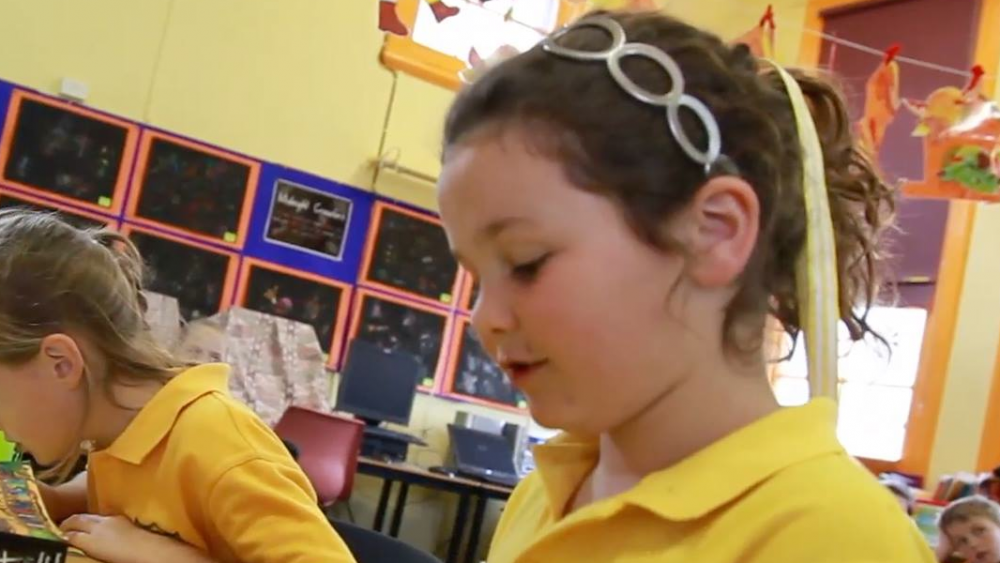Big tick for Scripture classes in Schools
Government report reveals students at 92 per cent of primary schools and 81 per cent of secondary schools take part in Scripture
Christian groups in NSW have welcomed the results of a State government review into Special Religious Education (SRE), a programme that gives people of faith weekly access to State schools. A very high rate of participation is revealed in the report.
Students at 92 per cent of primary schools and 81 per cent of secondary schools take part in Scripture. Another key finding is that there are good working relationships between the SRE providers and the Department of Education.
“I am pleased that the report confirms Special Religious Education has overwhelming support, is working well and is an integral part of the holistic education offered by New South Wales public schools,” Anglican Archbishop of Sydney Glenn Davies said.
“This review is enormously helpful in highlighting areas that might be strengthened and improved to make Special Religious Education even better.” – Murray Norman
“By maintaining the choice to continue studying Christian SRE, the NSW Government is acknowledging what’s proven to still be a highly popular program in NSW Public Schools,” said Murray Norman, who heads the Presbyterian SRE programme, and and is the spokesperson for the overwhelming majority of providers of Christian SRE.
“This review is enormously helpful in highlighting areas that might be strengthened and improved to make Special Religious Education even better,” he added.
An “opt-in” process for secondary students was suggested in the report – but rejected by the Department.
Some of the report’s recommendations by ARTD Consultants were rejected by the Department of Education. They include setting up a “State wide monitoring system for SRE”. The Department “did not consider it to be the best use of resources” to establish another monitoring system. It also rejected the recommendation to collect SRE stats at enrolment. And it rejected a suggestion of a new review of the enrolment system because it has only been recently looked at – in 2015.
Enrolment has been one of the more controversial aspects of Scripture, focused on SRE being an “opt-out” programme. Both the Report and the Department support continuing “opt-out Scripture” for primary schools. But an “opt-in” process for secondary students was suggested in the report – but rejected by the Department.
The Department rejected a suggestion that it collect a broader amount of information about potential providers in the application form, partly to identify radical groups or cults. The department noted that the current application form allows for full consideration of appropriateness and governance structures.
The department also rejected a proposal to publish a list of SRE volunteers.
However the department supported a recommendation to review SRE implementation procedures in recognition of the “different operating contexts in primary and secondary schools and the relatively low participation rate in secondary schools.” It also agreed to make the different procedures available to all schools and providers of SRE. This can be seen as an attempt to respond to some of the logistical challenges of SRE in some schools.
The department also rejected a proposal to publish a list of SRE volunteers, believing it to be unnecessary and a potential breach of privacy.
On the contentious issue of age-appropriate material, the Department upheld the report’s proposal to provide expert advice to providers on “effective teaching and age-appropriate learning experiences.”
One rejected suggestion – that students not participating in SRE should continue their regular classwork – drew the attention of SRE’s opponents. One lobby group posted on social media that they “were disppointed (but not surprised)” at the rejection of this suggestion, and the suggestions concerning enrolment.
The widespread nature of scripture has been confirmed by the report, which had been predicted by SRE providers to Eternity, and which, alongside our recent reporting of the increases in the number of schools and increased numbers of paid SRE teachers, paints a healthy picture of SRE. The providers have welcomed findings that will improve SRE.
These include:
- Ensuring schools place clear information about approved SRE and SEE providers working in their school and online links to their curriculums annually.
- Making the SRE and SEE provider approval process more transparent by publishing their application forms and the criteria for the decision to approve them online.
- Requiring schools to communicate with parents who lodge complaints about an SRE or SEE provider, the outcome of their complaint and, if required, any subsequent action against the provider.
- Providing SRE and SEE curriculum developers with advice that can improve effective teaching practices, in particular age appropriate learning experiences.
- Reviewing the Department’s implementation procedures for both SRE and SEE to ensure there is clear information available for principals, school staff, parents and providers about what is required for these providers to participate in schools.
- Requiring the Department to regularly monitor SRE and SEE provider compliance on a regular basis.



